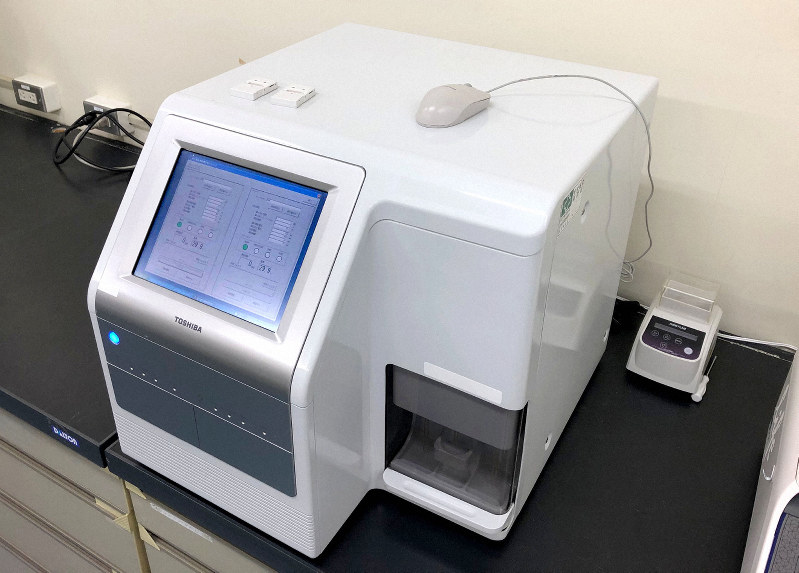New machine detects 13 types of cancer with a single drop of blood
Offers new hope for deadly cancer types

Toshiba has invented a machine that can detect 13 types of cancer using just a single drop of blood in record time: in just two hours, people will have a full diagnosis for the ridiculous price of $180 or under with more than 99% accuracy.
This is Star Trek-level stuff.
As reported by Japanese publication The Mainichi, the machine is capable of detecting some of the most aggressive and deadliest cancer types: gastric, esophageal, lung, liver, biliary tract, pancreatic, bowel, ovarian, prostate, bladder, breast cancers, sarcoma, and glioma. Early detection is crucial for survival in all of these cancer types.
Right now, existing cancer blood detection tests require doctors to draw tens of milliliters of blood and costs thousands of dollars. On the other hand, this machine makes diagnosis from just 50 microliters of blood — a single drop.
The process is so simple and fast that it could become a standard procedure that could be done virtually anywhere, significantly increasing the possibility of early detection, treatment, and survival.
As Toshiba’s Frontier Research Laboratory’s chief research scientist Koji Hashimoto said at the press conference announcing the breakthrough machine, “compared to other companies' methods, we have an edge in the degree of accuracy in cancer detection, the time required for detection and the cost.”
How the cancer detection works
The machine builds on previous research by Toray Industries, which last June announced a new cancer-detection chip that is 100 times more sensitive than any other chip of its kind. Its chip, however, “only” had a 95% accuracy vs Toshiba’s claimed 99% rate.
Sign up to get the BEST of Tom's Guide direct to your inbox.
Get instant access to breaking news, the hottest reviews, great deals and helpful tips.
Both technologies is capable work by detecting some types of microRNA that accumulates in the bloodstream in the case the patient is suffering from cancer.
The machine was developed in collaboration with the National Cancer Center Research Center and Tokyo Medical University.
The company expects the machine — which you can see above — to go under medical trial next year, expecting to have it made available in the market within several years. It seems like a long wait for something that could be saving hundreds of thousands of lives right now.
Jesus Diaz founded the new Sploid for Gawker Media after seven years working at Gizmodo, where he helmed the lost-in-a-bar iPhone 4 story and wrote old angry man rants, among other things. He's a creative director, screenwriter, and producer at The Magic Sauce, and currently writes for Fast Company and Tom's Guide.

